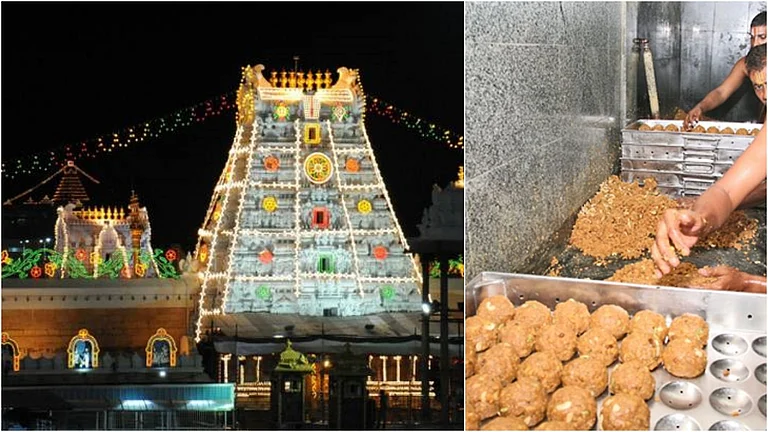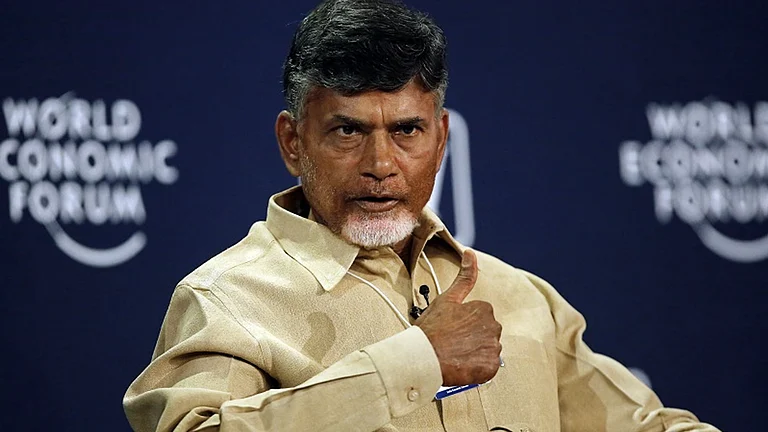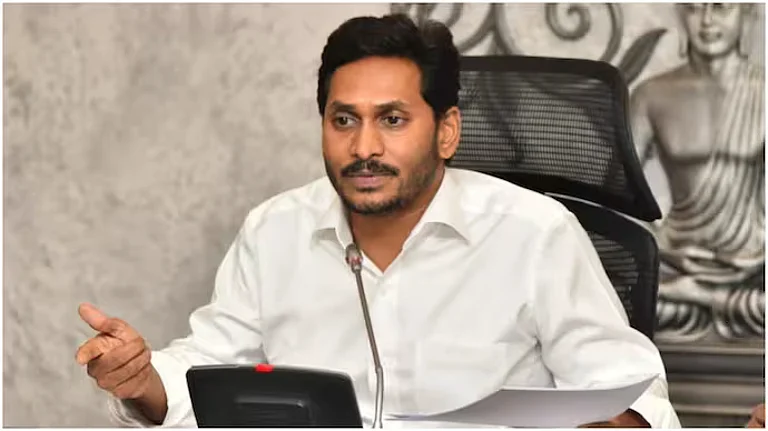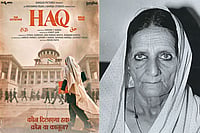It has been 10 years since the separation, but Andhra Pradesh (AP) is still hurting for Hyderabad. It was the soul of our state, says a fisherman by the banks of the serene Godavari on a balmy, breezy evening a little out of Rajahmundry (or Rajamahendravaram now). It was the best jewel. ‘Heera tha hamara’, says a lady selling ripe, bright yellow Banganapalle mangoes in a market in Vijayawada. “I will never vote for the Congress because they split the state,” remarks an elderly autorickshaw driver in Guntur.
Not that the Congress counts in these elections in AP, simultaneously being held for both the assembly and the Lok Sabha. Or the BJP, for that matter. It’s a straight fight between the two regional parties—the incumbent Yuvajana Sramika Rythu Congress Party or the YSRCP headed by the youthful Jagan Mohan Reddy and the veteran N Chandrababu Naidu’s TDP (Telugu Desam Party). The BJP is the junior partner in alliance with the TDP and Pawan Kalyan’s party (actor and brother of actor-cum-politician Chiranjeevi), the Jana Sena.
So much so that in the mega Narendra Modi rally in Rajahmundry, the PM gets to speak only after Kalyan finishes his piece—a rarity for Modi in any state campaign—and by when many of those who have come (or have been fetched) from before noon for the 4.00 pm rally have started to stream out of the venue. Surprisingly, Modi devotes considerable time in his speech going after the Congress which is hardly a contender in Rajahmundry. The rest of the speech is about local issues, stalled projects, rampant corruption and policy paralysis in the state.
Modi attacks Reddy and his policies in his speech, but only so much. The earlier speeches by the BJP leaders in AP were even softer on the YSRCP. Reddy, who is not part of the combined opposition INDIA bloc, never takes on the PM directly either. Till recently, there was speculation that the BJP would tie up with the YSRCP, but in the end, it chose its old ally, the TDP. Naidu spent 53 days in jail last year, accused of irregularities in the skill development scheme, and his supporters felt that after this humiliation, he would never return to the National Democratic Alliance (NDA). But in politics, stranger things have happened.
It’s a fierce battle between the YSRCP and the TDP on the ground. For the YSRCP, the first challenge is fighting the fatigue of being in power and the second is to regain the lost hold on a region which it considers its desam. While the YSRCP is seen as a welfare party, the TDP is associated with development, given Naidu’s past record in undivided AP as the architect of Hyderabad’s tech revolution. Analysts say that the YSRCP is stronger in rural areas, where the welfare schemes have benefited many villagers, while the TDP has support in the cities.
During our travel in the interior areas of the state, we saw that various schemes have reached the beneficiaries. Some families have got as much as Rs 3 lakh from the government to help them in health emergencies, education and farming. In Tadikonda village near Guntur, we meet Ibrahim Khan, a small farmer growing cotton, who says his family has got over Rs 2.7 lakh from the government so far. “I have got two stents put in my heart. The operation cost was about Rs 1 lakh, which was done completely free. My wife had a hip replacement surgery, again costing about Rs 1 lakh, for which I didn’t have to spend a rupee. We even got free medicines for one year. I have also been getting Rs 13,000 every year for five years under the Rythu Bharosa scheme to help in my farming. My wife also got Rs 18,500 per year under a scheme for women over 45 years to help them in small businesses,” he says.
Others too have benefitted from these schemes on a day-to-day basis. Rajendra Vempa of Seethampeta village in Nellore district says his family gets rice free of cost. They have to pay for daal, cooking oil and sugar, but it’s about a third less than the market rates. “Government volunteers come to our village and deliver the ration,” he says. In Kovvalli village, about an hour away from Vijayawada, V Anitha, 35, is hard at work at around 9 pm in her milk-testing unit. Narasamma, who has two cows, has come with about a litre of milk. Anitha takes a sample in a vial and puts it in a machine which tests the fat content. The machine reads a count of seven. For this fat content, Narasamma will get Rs 56 per litre. The maximum fat content reading goes up to 13, which means the milk has very little water, and the price per litre is Rs 104. “This is a scheme started by Reddy in association with the Amul cooperative. The money is paid directly to the farmer’s account,” says Anitha. She works two shifts in the morning and evening and gets paid Rs 10,000 per month.
The delivery of these schemes appears to be on course, but how can the state government go on funding them? The opposition alleges that AP has already accumulated a debt of over Rs 13 lakh crore. “Yes, there have to be welfare schemes. But it cannot be extreme. Along with welfare, there has to be development, there has to be industry. The welfare schemes can’t be funded through debt,” says Pemassani Chandrashekhar of the TDP, the richest candidate in these elections with declared assets of Rs 5,785 crore, contesting from Guntur. We meet him in his plush apartment in the city. He has been a doctor in the US; has written many medical books; and runs a successful ed-tech firm abroad employing over 600 people. He says his entire wealth is outside India, and it’s fully tax-paid. Chandrashekhar says he has entered politics to set systems right here. According to him, only Naidu and the TDP can bring industrial development to AP which will help fund the welfare schemes.
Chandrashekhar is all for reforms, but is opposed to the Reddy regime’s Land Titling Act (LTA), one of the most controversial issues in this election. The government brought in the new act as part of land reforms with an aim to digitise all landholdings in the state. The objective was to make buying and selling of land transparent and do away with numerous formalities. But the TDP has been successful in branding it as a scheme by the government to usurp people’s land. As many landholdings, both agricultural and commercial, don’t have proper records, there is a fear among the citizens that their farms and property may be snatched away from them.
“Land titling is a big issue. The YSRCP has not been able to convince people about its validity. The TDP will certainly make it an election pitch,” says Lavu Sri Krishna Devarayalu, 41, TDP’s candidate from Narasaraopet. Devarayalu recently quit the YSRCP after 10 years because he didn’t get the constituency he wanted. He is still finding his feet in the TDP and is coming to terms with its tie-up with the BJP. When asked if he was aligned to the ideology of this new alliance, he says: “There is no ideology with any party anymore.”
Ideology is not an issue in AP polls. The speeches by the BJP leaders too are measured. When people go to vote on May 13, it will be to choose one of their home-grown parties—to decide whether to get Naidu back to power or to try out Reddy for another five years.
MORE FROM THIS ISSUE
Satish Padmanabhan in Vijayawada, Rajahmundry and Guntur
(This appeared in print as Andhra Biryani Of Local Spices)






























